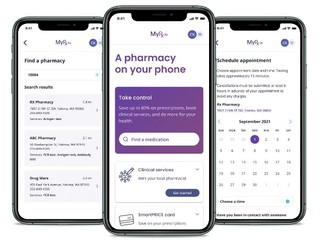
Transcarent raises $126M to accelerate AI capabilities
This round values the company at $2.2 billion
 As everyone knows, the amount that the U.S. spends on healthcare is astronomical: in 2022 the number reached $4.4 trillion and it projected to reach $7.2 trillion in 2031, when it will account for nearly 20% of the nation’s overall economy.
As everyone knows, the amount that the U.S. spends on healthcare is astronomical: in 2022 the number reached $4.4 trillion and it projected to reach $7.2 trillion in 2031, when it will account for nearly 20% of the nation’s overall economy.
Transcarent looks to solve that problem by offering a consumer-directed health and care experience for employees of self-insured employers and their families, acting as a single-stop health platform, addressing many of the most important and frequent health needs of a typical member. The company is trying to improve the healthcare experience of members by providing them with unbiased information, trusted guidance, and easy access to high value care.
Currently, more than 4.3 million people have access to Transcarent through their employer or health plan, and now the company is looking to accelerate its AI capabilities, support commercial growth, and enter into more strategic partnerships. To facilitate that growth, the company announced a $126 million Series D funding round on Thursday.
Led by General Catalyst and 7wireVentures, joined by new investors Geodesic Capital and Memorial Hermann Health System, with support from previous investors Threshold Ventures, Kinnevik, Ally Bridge Group, Human Capital, Merck Global Health Innovation Fund, Alta Partners, and Leaps by Bayer, Transcarent’s total funding raised now stands at approximately $450 million at a valuation of $2.2 billion.
Founded in 2020, Transcarent, which is led by Glen Tullman, the founder and former CEO of Livongo, Transcarent’s customers are large, self funded employers, and it’s helping them manage healthcare spend by offering services through a digital and human front door. In part, that means navigating employees to an integrated system of services within the Transcarent ecosystem. If a member needs a service, Transcarent will get them to what it believes are the high value services that it has vetted.
Members get access to 24/7 access via chat, phone, and video to a personal Health Guide, expert second opinions, medication review and management, physical therapy, and full surgery management. For example, if a patient is told they need knee surgery, Transcarent sets them up with a free second opinion to ensure they actually need that surgery; if it is determined they do, Transcarent will then provide the patient with information on the best places to get it done.
Another potential use case for Transcarent would be someone who gets sick in the middle of the night; the patient can connect with a doctor via text, call or chat to resolve the issue, get their prescription called in, and have a record of the appointment outlining their treatment plan without having to go to an urgent care center, or waiting until the morning to get care.
There’s no copay or deductible for members to use the services through Transcarent.
Since raising its $200 million Series C round in January 2022, Transcarent has launched experiences for weight health, cancer, behavioral health, and pharmacy care, while also growing its value-based Surgery Centers of Excellence program.
Additionally, Transcarent launched the National Independent Provider Ecosystem with 12 health systems, including Advocate Health, Atrium Health, Baylor Scott & White Health, Corewell Health, Hackensack Meridian Health, Intermountain Health, Mass General Brigham, Memorial Hermann Health System, Mount Sinai Health System, and Virginia Mason Franciscan Health. The goal is deliver a better high-quality consumer experience that is more affordable for self-insured employers.
"Rising healthcare costs place a significant strain on employers and limit US economic growth and vitality," Ken Frazier, Executive Chairman at Transcarent, said in a statement.
“I am proud of the progress Transcarent has made to improve the current system for employers and employees alike who are demanding a better, more affordable health and care experience. The outcomes that Transcarent has delivered allow all stakeholders to focus on what matters most: empowering employees with improved access to health and wellness care."
(Image source: transcarent.com)


